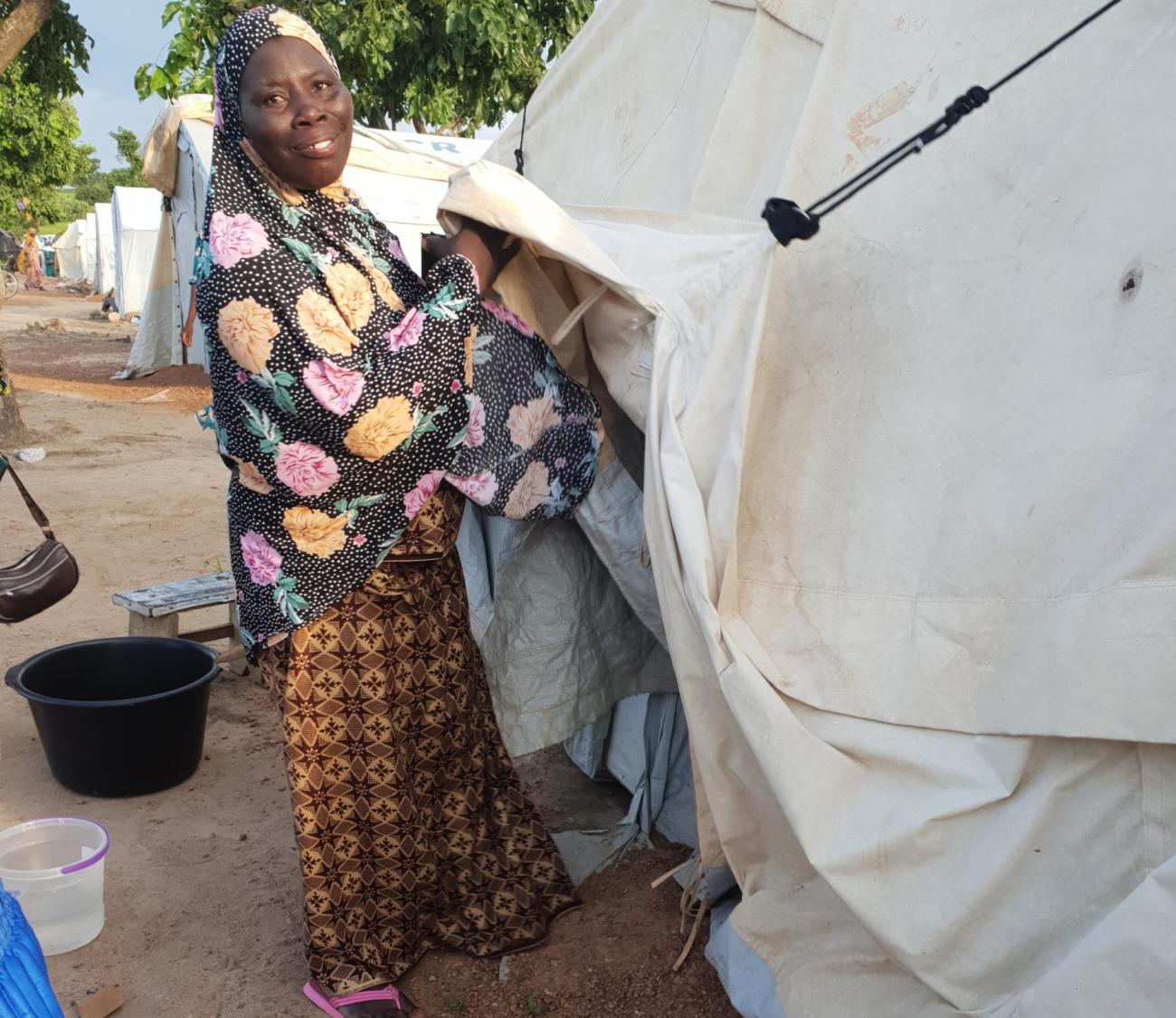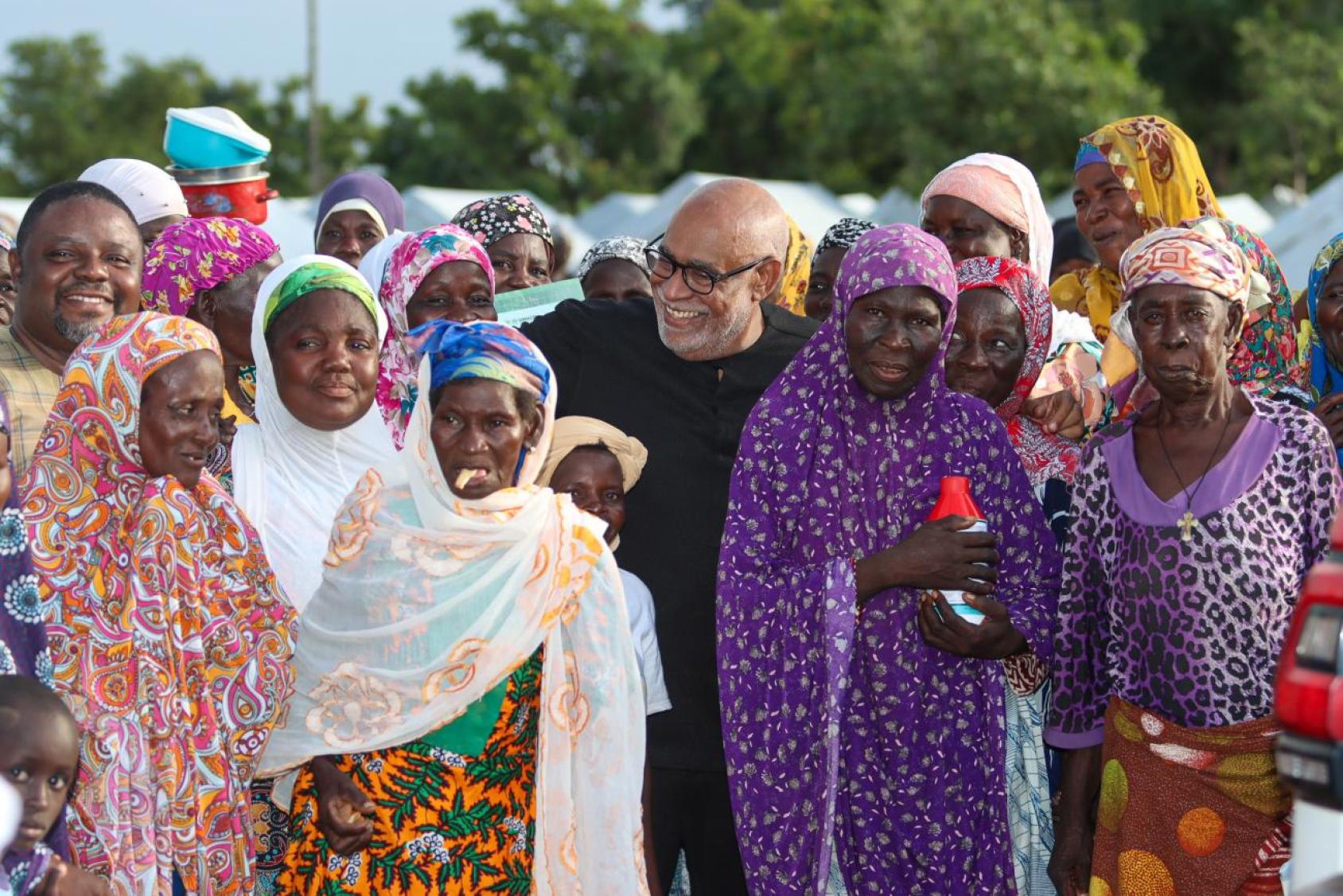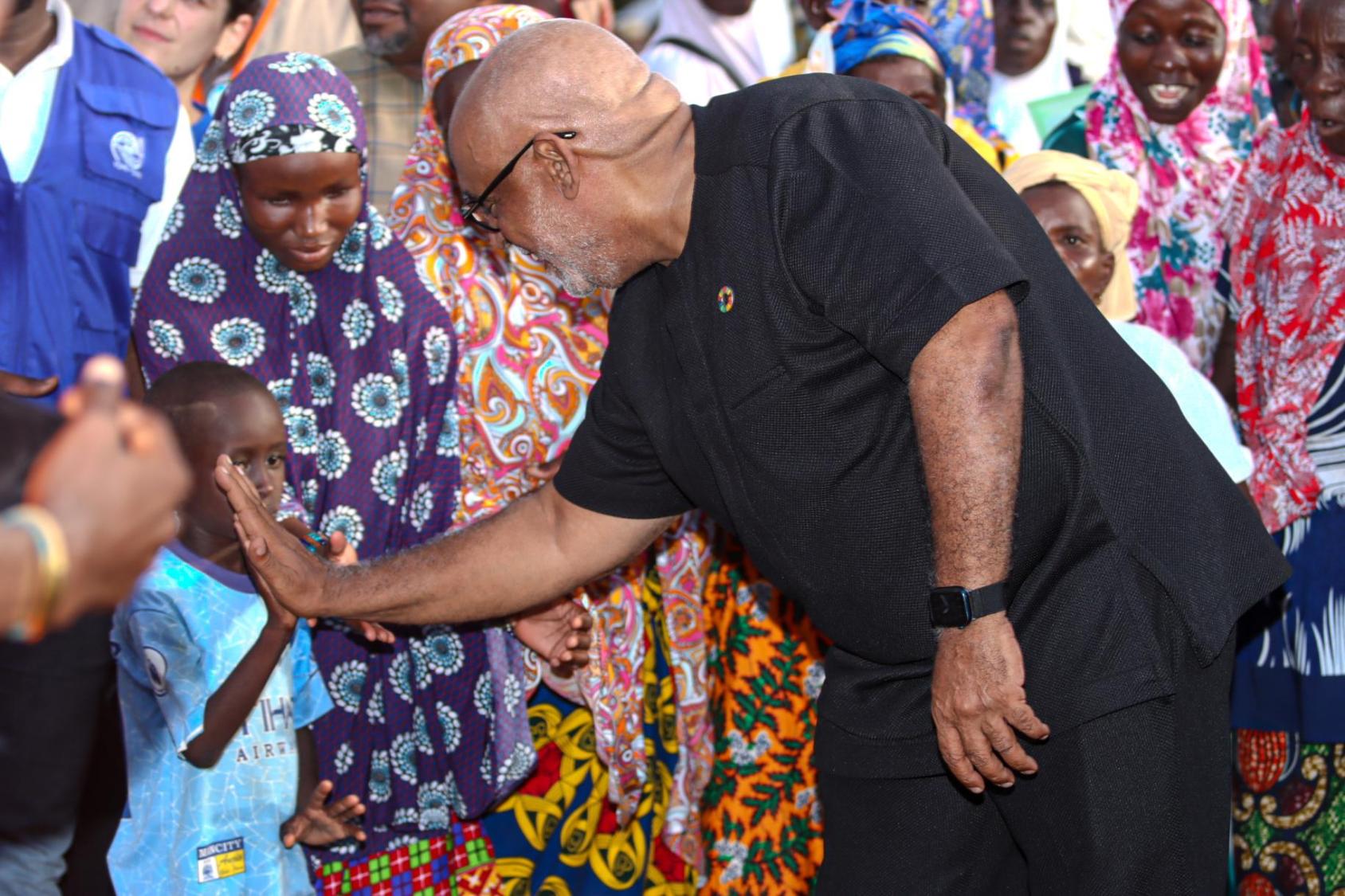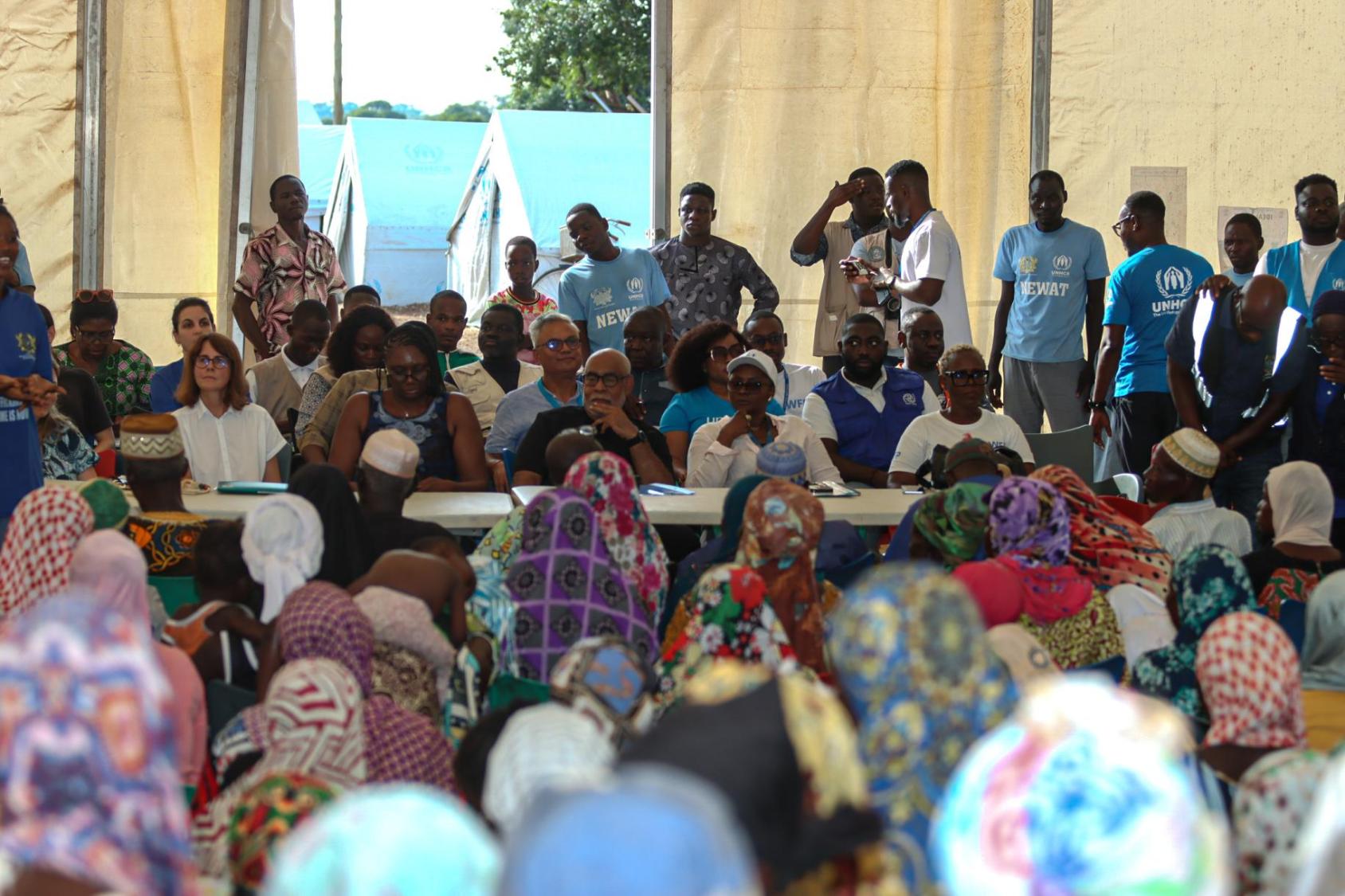Nourishing Hope: How Ghana is Tackling Food Insecurity for Refugees and Asylum Seekers

“ We heard footsteps around the house at night. People started shouting. At daybreak, dozens had been killed in our neighborhood. It was terrifying. We did not know who would be next. So, we decided to leave and cross into Ghana.”
These are some of the harrowing testimonies emerging from Burkinabe asylum seekers arriving in Ghana. Forced by the precarious security situation in the Sahel region, thousands have fled Burkina Faso with 80 per cent of them being women and children.
Uprooted from their homes, many live in the Tarikom Settlement, 30 kilometres from the Burkina Faso-Ghana border, in the Upper East Region in Ghana, one of two settlements established for Burkinabe asylum seekers. The other, the Zini Settlement, is in the Upper West Region.
While they are safe, life is not what it used to be. Asylum seekers live in makeshift plastic sheeting housing which offers no respite on hot or rainy days. Basic needs such as food, shelter, potable water, education, and health have been met with roadblocks, with many relying on cash assistance from international organizations just to get by.

Food security, in particular, has proven to be an enormous challenge. Northern Ghana is home to 18.2 per cent of the country's population, yet accounts for nearly half of the country’s food-insecure population. The added pressure of hosting asylum seekers has further strained the region’s limited resources.
The UN in Ghana, led by the United Nations Resident Coordinator's Office (RCO), is working with the Government of Ghana to address the complex situation and ensure refugees and asylum seekers are not left behind.
With the support of the Government of France, a recently launched Food Assistance Programme, that tackles food security, nutrition, health and well-being of asylum seekers and host communities, is helping shift the course.
Supporting vulnerable communities with a focus on pregnant and breastfeeding women, adolescent girls, and children under 24 months, the Programme brings together four UN agencies to complement efforts and ensure tangible impacts for those who need it most. UN Resident Coordinator Charles Abani has led efforts from the front to strengthen partnerships among stakeholders that galvanize attention and assistance for this issue.

The Programme is being implemented by the Departments of Agriculture, Ghana Health Service, and engages various non-governmental organizations with the aim of reaching 10,200 asylum seekers and members from host communities and additionally benefit 20,000 others from the broader communities in the Upper East and West regions.
Speaking at the launch of the Programme, Mr. Abani pointed out the links between food security and stability, “When communities have improved access to diverse and affordable foods, higher incomes, and increased access to social protection, nutrition, and health services, they live amicably and are better equipped to ensure their safety.”
The Programme tackles the root causes of challenges by preventing malnutrition, strengthening health systems, promoting sustainable agriculture and eco-friendly business ventures and thereby fostering overall resilience for communities. This will ensure communities are less vulnerable to further displacement and irregular migration. The UN’s support is being channeled through a few ways:
Building strong evidence to tackle food insecurity
With leadership from the Government of Ghana through the Ghana Refugee Board (GRB), the UN Refugee Agency (UNHCR) continues to register Burkinabe asylum seekers. This is vital as the Ghana Immigration Service estimates that 11,500 Burkinabe asylum seekers are unregistered. This first-hand data is crucial not just for counting vulnerable population but also designing and implementing any intervention.
Earlier this month, the International Organization for Migration (IOM) together with the National Disaster Management Organization concluded an assessment of fragility levels related to food security and nutrition in 183 migrant hosting communities across six districts in the Upper East and Upper West regions.
For this exercise, IOM used its Displacement Tracking Matrix Tool and its Solution and Mobility Index (SMI) to capture vital data related to security and safety, climate change, social cohesion, nutrition, and health. Amongst others, the findings from this data collection exercise will inform the design of training for members from migrant host communities on sustainable agriculture practices to help address food security challenges faced by the communities.
The UN Children’s Fund (UNICEF) will also be complementing this by helping identify and treat children with severe acute malnourishment through community health volunteers and building the capacity of health care workers to provide therapeutic foods and milk.

Linking asylum seekers’ immediate needs to long-term resilience
Currently, with support from the RCO, the World Food Programme (WFP) provides cash assistance to 800 households (approximately 4000 people) to meet their food security and nutrition needs.
In addition to this, several resilience and livelihood activities such as vegetable and grain production, livestock rearing, aquaculture and more are trying to help asylum seekers and host communities access nutritious food and sustainable agriculture. Further, the Programme promotes new social norms and shapes behaviors through one-one and group counselling, and radio and community discussions on healthy diets and lifestyle.
Making the links between food security and well-being
To support vulnerable mothers and children, UNICEF is building the capacity of health workers to handle nutrition in emergency contexts as well provide quality reproductive, maternal, newborn, child and adolescent health and nutrition services.
This usually entails disseminating therapeutic foods that are rich in micronutrients and supplements, undertaking immunization and growth monitoring and providing antenatal and postnatal services. Key to this is also influencing feeding practices for infants and young children and promoting dietary diversity through food demonstrations for children, pregnant women, and lactating mothers.
Aligning with Ghana’s long-term development plans and the country’s commitments to the Sustainable Development Goals, the Food Assistance Programme aims to lay the foundation for stability, security, and resilience not just in Ghana but in the wider region. With the leadership of the Resident Coordinator and the sustained support of the UN agencies, this will ensure that dignity becomes the new reality for people on the move.
More coordination results from the UN in Ghana here.













